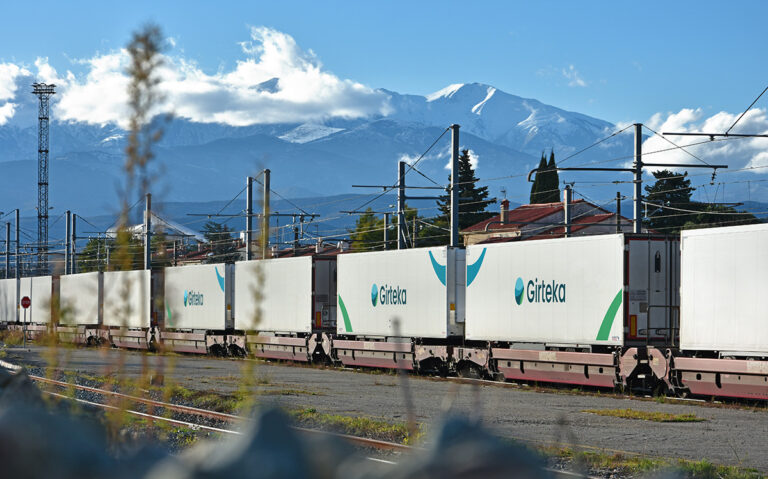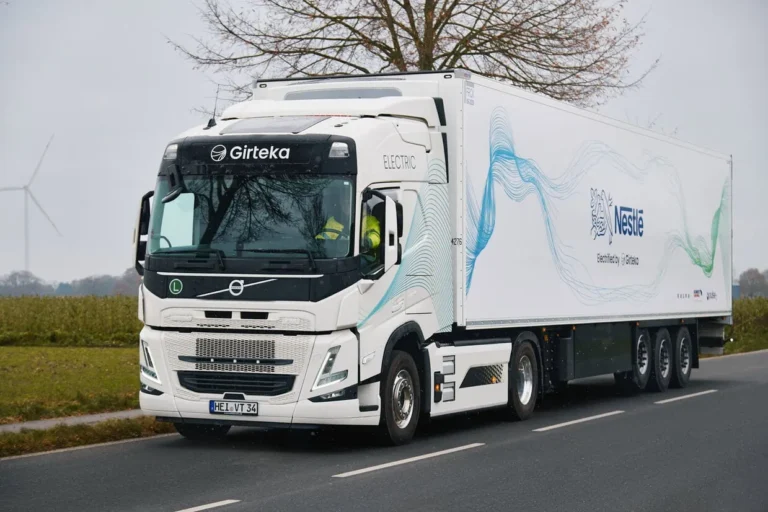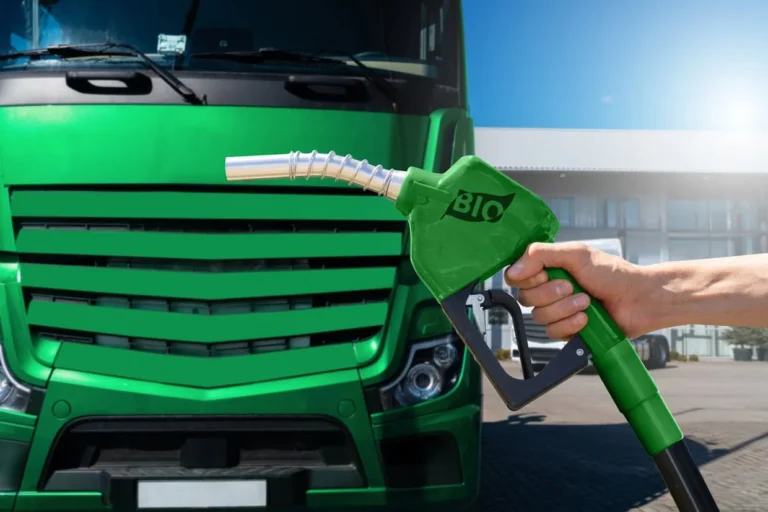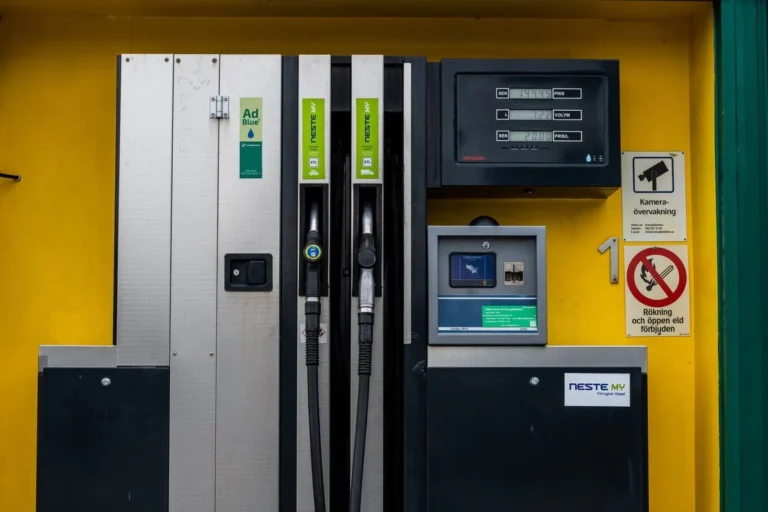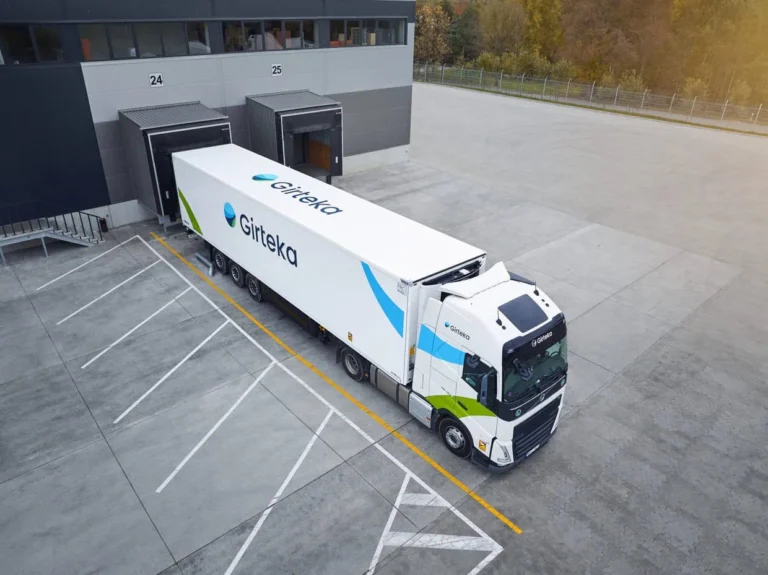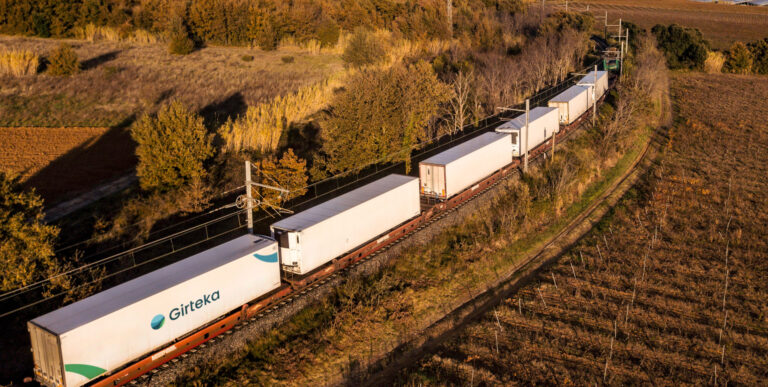The road freight transportation industry in the UK and Ireland has been experiencing significant changes in the last few years due to various factors, including Brexit and the COVID-19 pandemic. With the UK leaving the European Union, import and export procedures have become more complicated. Today, new challenges arising from recent geopolitical shifts in Europe are posing yet another threat to the road haulage industry in the British Isles. How to succeed in this changing landscape as a road transport operator?
Keeping Up with New Regulations
With the continuing roll-out of new regulations and restrictions, it is more important than ever for road freight companies to stay informed. In the wake of Brexit alone, the import and export industry in the UK and Ireland has undergone significant changes.
As of October 1, 2021, companies are required to make mandatory safety and security declarations for all consignments entering or leaving Great Britain (with some exceptions), adding to the overall costs of transporting goods. The Irish Sea border has also impacted the industry, with some companies rerouting deliveries to avoid the new border control procedures.
More recently, the British government announced changes to the Clandestine Entrant Civil Penalty Scheme. The scheme penalizes truck drivers and owners for transporting illegal immigrants into the UK and for failing to secure a goods vehicle. The changes to the Scheme, which entered into force on February 13, 2023, saw an increase of the maximum penalties and narrowed the statutory defences available to those who have carried an illegal immigrant onboard.
To support the haulage sector and aid the COVID-19 pandemic recovery efforts, the levy for the use of heavy goods vehicles (HGV) of 12 tonnes or more on UK roads has been suspended since August 1, 2020. However, a reformed HGV road user levy for both UK registered and non-UK heavy-goods vehicles will come into effect on August 1, 2023, with a revised structure and rates. The amount of the fee will be based on vehicle weight (as a broad approximation to CO2 emissions), its air quality emissions standard, and levy duration.
More To Come
Another major hurdle awaits the industry at the end of this year. A new EU border control IT system that was due to be introduced in May 2023, has been pushed back to the end of 2023. The Entry/Exit System (EES) will require all non-EU nationals – including citizens of the UK – to register their fingerprints and be photographed along with their passport details before entering the bloc. Truck drivers will also be required to leave their vehicles for the biometric checks. So far, concerns have been raised that the EES would threaten capacity at Britain’s main gateway to Europe – Dover.
But that is not all. From October 31, 2023, further Sanitary and Phytosanitary (SPS) checks will be required on certain goods being imported from the EU and EFTA states to Great Britain. Exporters and logistics companies will need to determine the Target Operating Model (TOM) risk category for the commodity transported and follow the SPS rules for that category. The new, broader customs control requirements were first set to be introduced in 2022 but were pushed back due to concerns over the rising cost of living and the war in Ukraine, giving more time for traders to plan for the future.
Ferry costs to the UK are also set to increase in 2024. The new tax will be implemented under the EU’s Emissions Trading Scheme (ETS) whereby ferry operators will need to buy allowances for their carbon emissions (the vessel’s CO2 emissions per ton of cargo carried per km). The tax will apply for any routes in and out of the EU, increasing costs for ferry operators. Many shipping companies have already begun looking for more cost-effective and sustainable ways to transport freight, for instance, by utilizing vessels that run on alternative fuels, such as LNG, or by adjusting schedules for longer passage times, as vessels (like trucks) use much more fuel at higher speeds.
„Our main goal is to continue to deliver the business of our partners to their customers despite the possible disruptions in the market. That is why we are proactively reacting to all new upcoming changes and challenges in the market. I believe our preparation work will enable us to continue offering the highest quality of services in the UK and Irish markets. Our advantage is that we own the latest trucks on the market and employ digital tools that alleviate route planning as well as help save CO2 emissions,” states Mindaugas Aleška, Chief Operating Officer, Girteka Europe West.
No More ‘Business as Usual’
The UK Department for Transport recently conducted a qualitative study titled “Planning Routes and Crossings in the UK Haulage Sector in 2022,” which examined how the haulage sector has responded to recent events and disruptions in the market. The research involved in-depth interviews with 27 haulage managers from companies of varying sizes across different UK locations. The study aimed to understand how Brexit, the COVID-19 pandemic, the war in Ukraine, and other pre-existing factors have influenced route planning.
According to the report, Brexit has significantly affected the UK haulage industry with increased costs, more customs paperwork, and longer transport times. Delays and disruptions, higher expenses, and a perceived decrease in demand for UK goods were also noted. Large private carriers operated at reduced capacity immediately after the UK’s exit from the EU, while smaller companies chose to focus on domestic trade, resulting in goods piling up in warehouses.
To adapt to these challenges, haulage companies have taken different approaches. Some have embraced digital logistics systems, engaged with third-party logistics partners (3PL), or hired additional administrative staff. However, haulage companies also reported a general reduction in EU trade.
„The perception is that EU based companies are reluctant to send their fleets over to the UK where they are likely to experience delays, and they are also reluctant to buy from UK suppliers who may not be able to make delivery times, creating a general decrease in import and export,” the study stated.
Driver shortages have emerged as another significant concern, the research points out. Although the UK exited the EU, it has implemented most of the provisions of the Mobility Package. The return of many drivers to the EU following Brexit, has impacted route planning, as regulations surrounding drivers’ hours and rest stops, as well as the requirement to return to their home country, added further complexity to the process.
Fuel prices have nearly doubled within a year, posing a major challenge for the logistics industry. For instance, some companies have opted for more expensive but closer crossings to offset fuel costs. Disruption around Dover and perceived differences in checks at various ports or countries have also prompted haulage companies to consider alternative crossing points into the EU.
What Remains Crucial
When it comes to haulage companies in the UK, despite the multitude of challenges, some have identified opportunities for their businesses. This includes building new relationships with EU-based companies and utilizing technological innovations to enhance efficiency and sustainability in the industry. Looking ahead, road freight companies in the UK are calling for simplified regulations and early communication of changes, among other measures.
To address market challenges, the Irish Government has recently introduced support schemes and long-term strategies. The €18 million Licensed Haulage Support Scheme 2023 aims to assist licensed haulage businesses in dealing with cost pressures, specifically addressing the impact of high fuel prices. To ensure the long-term viability of the road freight sector, the Department of Transport published Ireland’s Road Haulage Strategy for 2022-2031, outlining a comprehensive plan to move towards decarbonization.
As the road haulage market continues to evolve, it remains essential for governments and industry stakeholders to collaborate in addressing challenges and adapt to changing trends and requirements. To not only survive, but also thrive in this changing landscape, road freight transport companies must stay informed, remain adaptable, and proactively address regulatory requirements.

